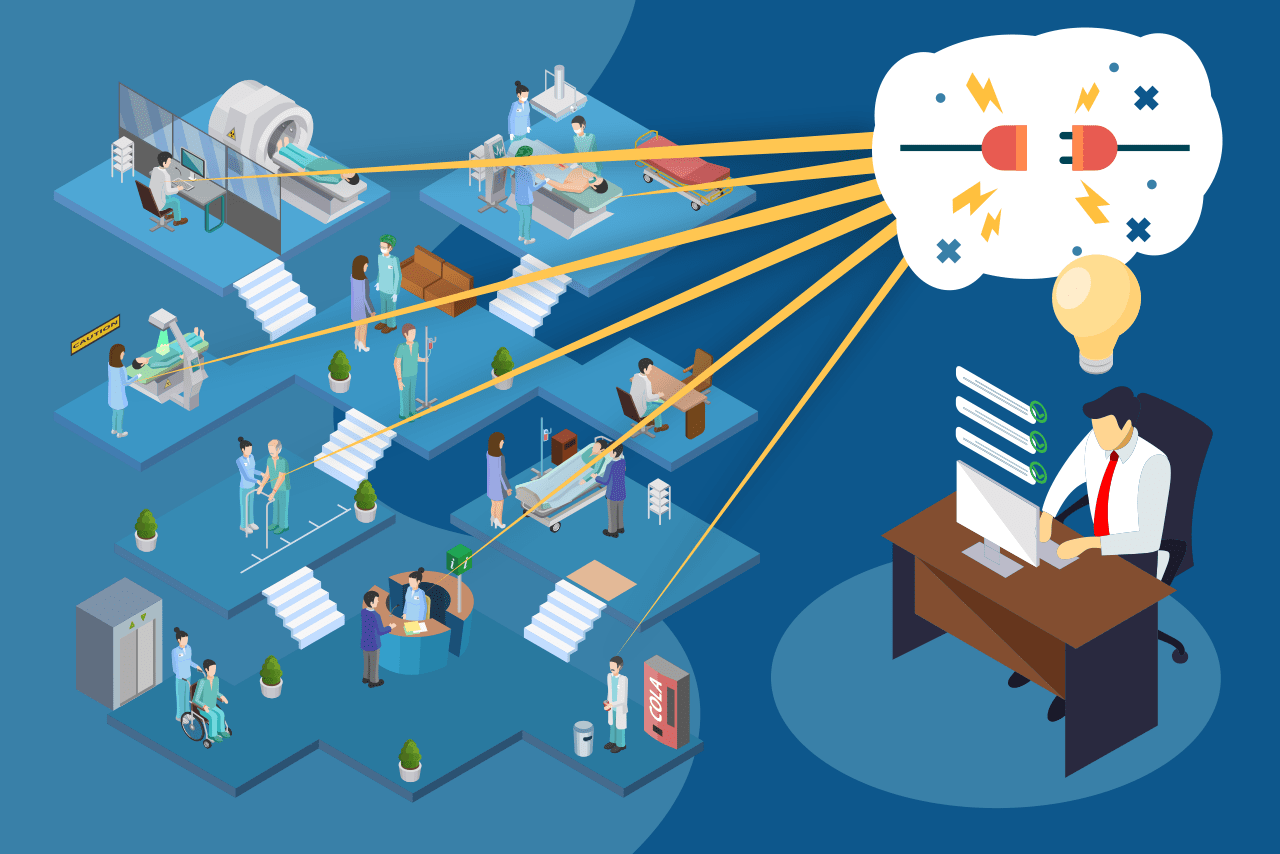Hospitals are one of the busiest buildings in the entire world. Everybody moves around, from doctors, nurses, nursing assistants, radiologists, medical technologists, everybody out on a common mission: save lives. People rely on hospitals for their survival and medical personnel cannot fail their patients. This is why it is important for an excellent internal communications strategy in medical centers. Internal communications is crucial especially for a 24/7 institution like hospitals. Seamless coordination among personnel is a major component of success in providing the best health care to patients. Otherwise, emergency cases will not be handled well and providing quality health care will have its problems.
The challenge now for the medical board and hospital administration is to devise an internal communications strategy that will make coordination among staff and personnel easier. For medical institutions like the Peterborough and Stamford Hospitals and the University Hospitals Birmingham in the UK, the Robert Wood Johnson University Hospital and Jackson Hospital in the US and also the Australian Healthcare, the answer to this challenge is to subscribe to DeskAlerts, a leading internal communications solutions provider from the US.
Desk Alerts is a software developer that aims to provide clients with the best internal communications strategy through desktop notification alerts. These notifications come straight to a person’s desktop or mobile. This system ensures that all important information, alerts, warnings, announcements and reminders. Sending messages can be customized according to recipients, whether to send it to all or to send it to a specific group.
Messages right through everyone’s fingerprints
DeskAlerts notification system is not only limited to desktops. It takes pride in having developed software that bridges technology gaps and crosses through different platforms. In institutions like hospitals where not all personnel are glued to their desktops, DeskAlerts makes sure all messages are received even if the doctors are doing their rounds to check each patient, even if the nurses are busy attending to everyone’s needs and even if the radiologists are on their jobs, performing X-rays.
- Desktop alerts. Alerts received on desktop are perfect for hospital people, who are on the computer round the clock such as the hospital administrative staff, the receptionists, the admitting section and the billing records personnel and the others. Notifications will be received as a desktop alert, where the message will just pop up from their screens and will stay there for as long as it hasn’t been acknowledged. It can also come as a screensaver alert, where the message can stay a little longer as it lingers as a screensaver.
- Email notifications. For more formal administrative memos to be sent to the hospital’s board of directors and department heads, alerts can be sent through email. Hospital-wide reminders and greetings on birthdays, Christmas, Valentine’s Day or the hospital’s foundation day can also be sent through email. Hospital newsletters are also best sent through email for attachments.
- SMS alerts. SMS alerts are perfect for doctors and nurses who are always on-call. They roam around the hospital everyday and are usually nowhere to be found. The hospital can provide one mobile work phone for each medical staff where all coordination can be done through SMS alerts.
DeskAlerts’ desktop notification system can improve the internal communications strategy of medical institutions through the following:
- Sending alerts simultaneously. All messages can be sent to as many as needed all at the same time. This saves time and effort on rounding memos and announcements in hospitals with different departments and number of floors. A send-to-all makes it easier to disseminate important information that is crucial to providing the best medical service to people.
- Sending alerts to specific groups. Not all messages are meant to be sent to all employees and staff. There are messages of confidentiality that should only be relayed to specific departments and key officials, that’s why DeskAlerts developed a feature where recipients can be filtered by the sender. This avoids leakage of information and protects relevant matters related to hospital operations.
- Emphasis on important messages. DeskAlerts recognize that emergency cases are always a part of any hospital operations. It has developed an emergency notification system where the sender can customize the message, from its font, colors, repetition and schedule, to give emphasis on how urgent the matter is.
DeskAlerts provides the best help in improving a hospital’s internal communications strategy. To facilitate an entire hospital is hard for its top officials but with DeskAlerts’ notification system, everything is monitored and under control. The best part is, there is no need to download anything as it is completely web-based. With the onset of technological innovations, medical facilities should also innovate and advance their communications systems to be able to serve their patients well.






